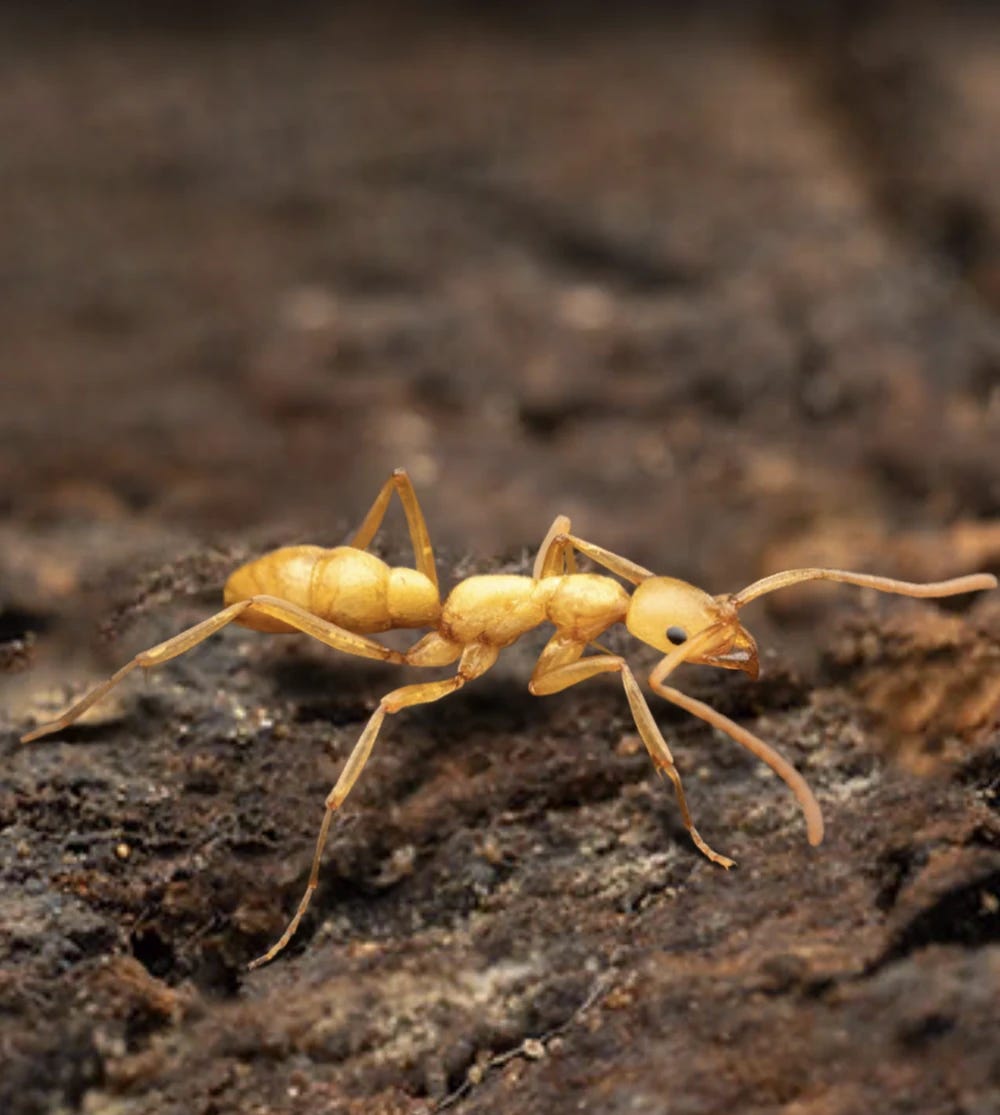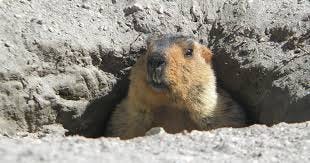The father of history Herodotus (fifth century BCE) was scornfully dismissed by some in antiquity as the ‘father of lies’. Not the least absurd of the many stories he tells in his wide-ranging Histories is that of the giant ants of India (in book 3 of his 9 books). He recounts (in his Ionic Greek dialect, which I read here):
In this sandy desert live ants, not as large as dogs but larger than foxes (the Persian king has some of these, which have been caught there). These ants live underground and dig out the sand in the same way as the ants in Greece, to which they are very similar in shape, and the sand they bring from the holes is full of gold.
ἐν δὴ ὦν τῇ ἐρημίῃ ταύτῃ καὶ τῇ ψάμμῳ γίνονται μύρμηκες μεγάθεα ἔχοντες κυνῶν μὲν ἐλάσσονα ἀλωπέκων δὲ μέζονα (εἰσὶ γὰρ αὐτῶν καὶ παρὰ βασιλέι τῷ Περσέων ἐνθεῦτεν θηρευθέντες). οὗτοι ὦν οἱ μύρμηκες ποιεύμενοι οἴκησιν ὑπὸ γῆν ἀναφορέουσι τὴν ψάμμον κατά περ οἱ ἐν τοῖσι Ἕλλησι μύρμηκες κατὰ τὸν αὐτὸν τρόπον, εἰσὶ δὲ καὶ αὐτοὶ τὸ εἶδος ὁμοιότατοι. ἡ δὲ ψάμμος ἡ ἀναφερομένη ἐστὶ χρυσῖτις.
It seems this must be obviously false, but Herodotus insists on its accuracy, which suggests that he thought he had got the story from a reliable source (who would have. been Persian, given the comment about the king having some ‘ants’). In the 1990s, however, an ethnologist called Michel Peissel was investigating in the Dansar Plain on the India-Pakistan border and discovered that burrowing squirrel-like creatures called marmots throw up gold bearing soil as they dig their burrows. The local Minaro people said that that for time immemorial they had collected gold dust from the heaps.
Peissel wrote a book, The Ants' Gold, in which he proposed a clever explanation for Herodotus’ tale: in old Persian the word for marmot might have been equivalent to 'mountain ant’. Herodotus’s Persian informant had therefore used the word that translated as Greek myrmex, ant, and Herodotus, who knew no Persian, assumed he was talking about real ants.
It’s a wonderful explanation, and though some scholars are sceptical (after all, marmots cannot be said to look ‘very similar in shape’ to ants) it rings true. Something was surely lost in translation.
.






An excellent explanation. They don't have marmots in Greece, and marmots have a distinctive gait with short legs and curvy bodies. Fascinating.
What a great explanation. I wonder if the gold dust, or the gold bearing soil has more symbolism to it?